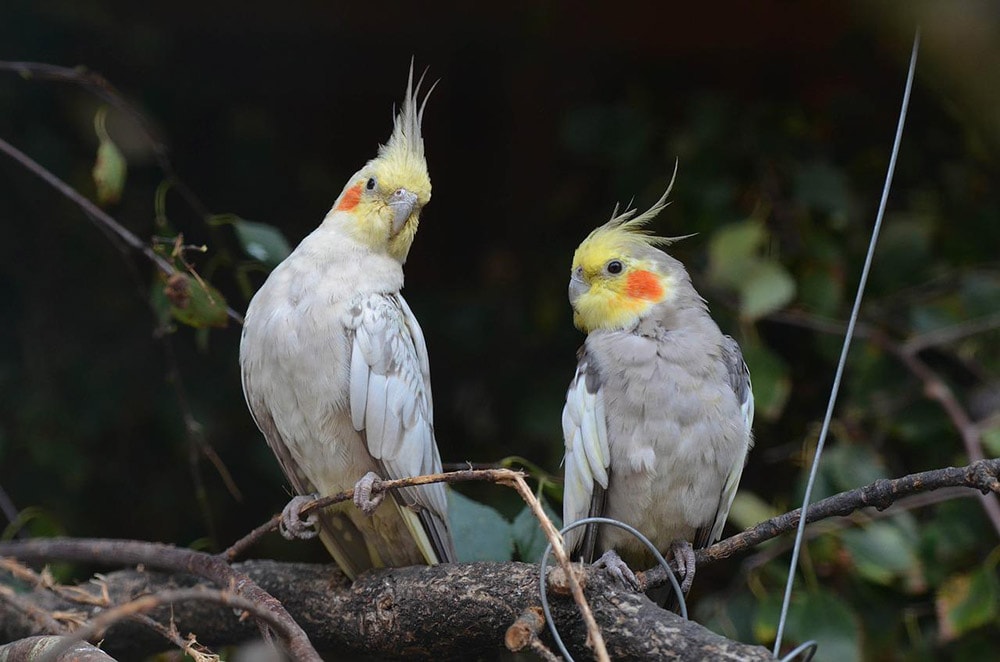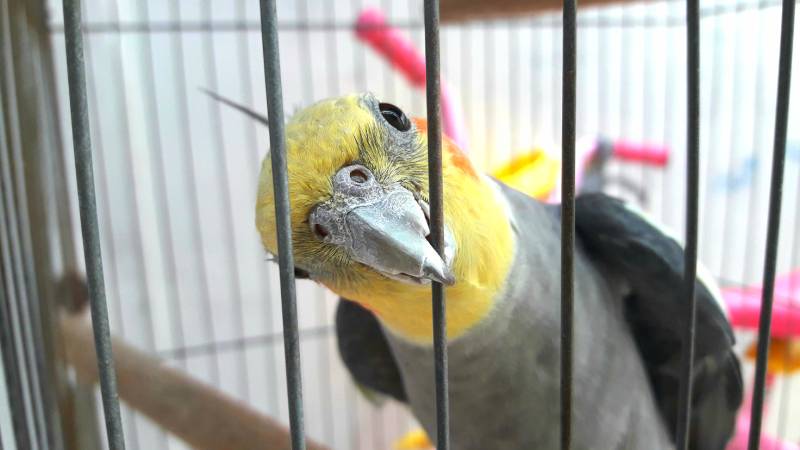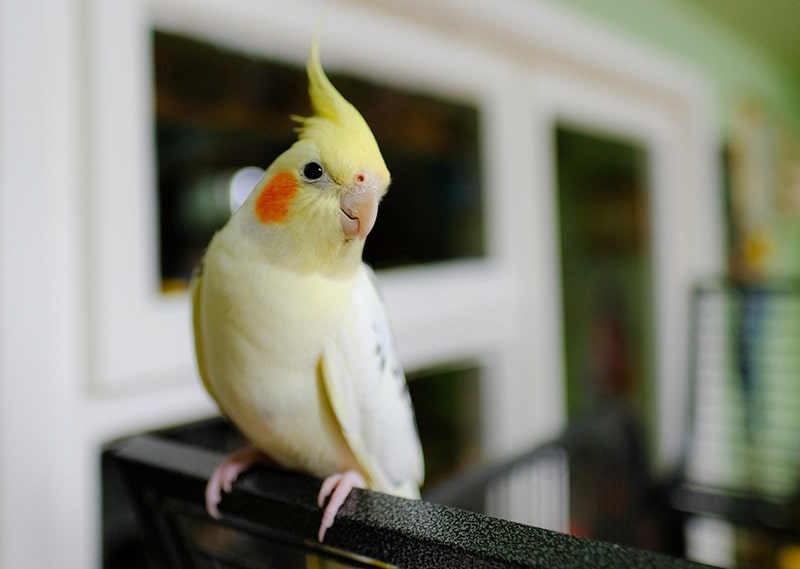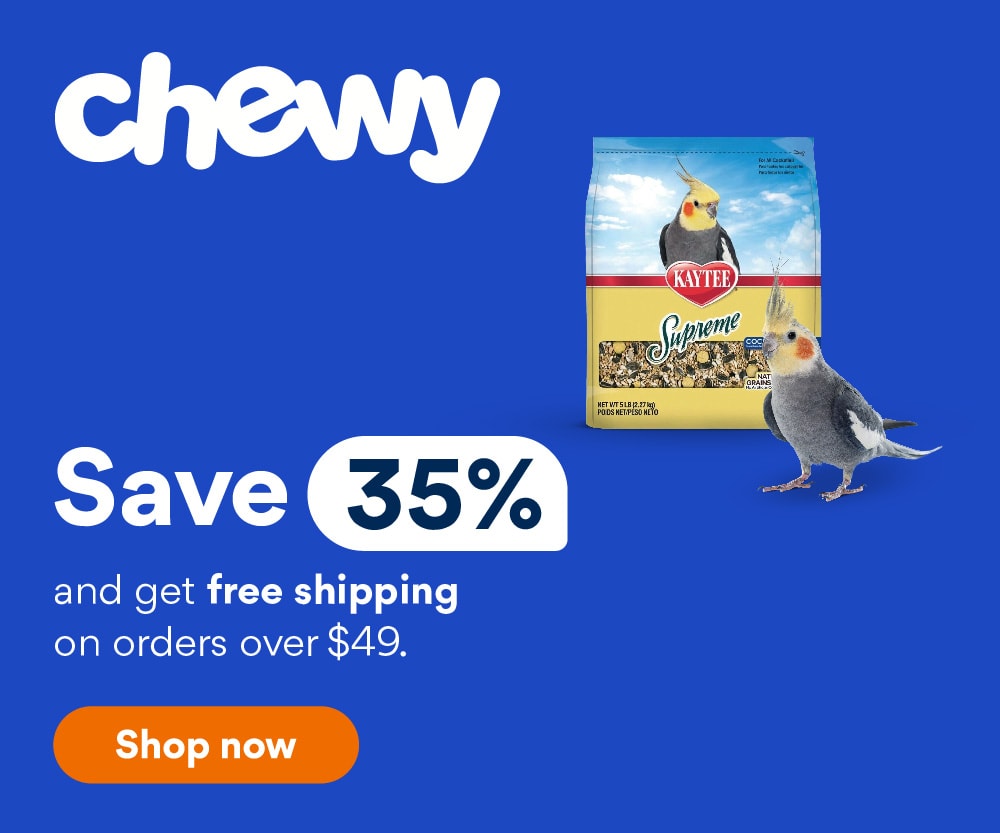How Often Do Cockatiels Poop? Vet-Reviewed Avian Health & Wellness Info!
Updated on
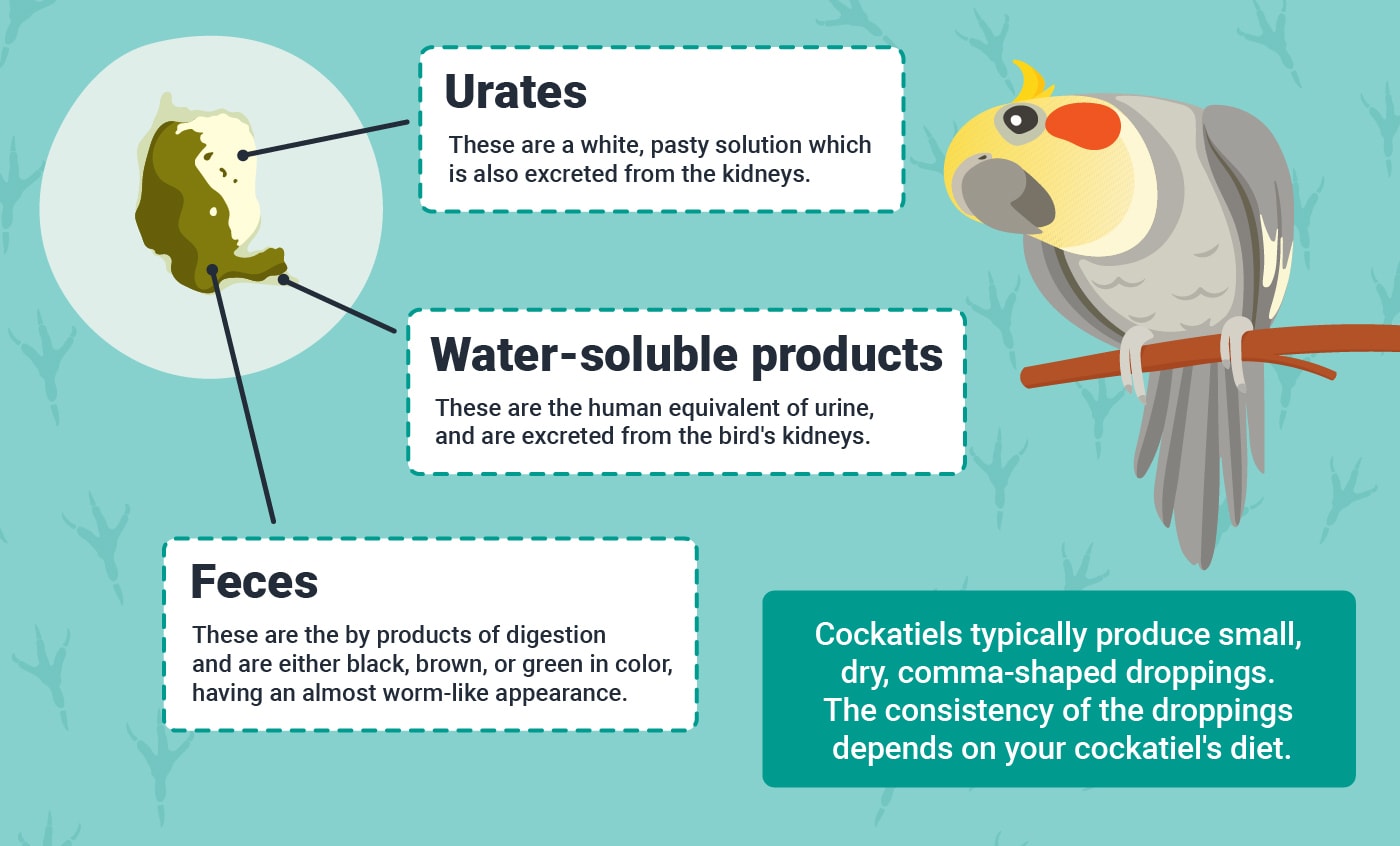
Bird droppings are a helpful indicator of a pet’s health. You can glean much from the color and consistency of the waste. Normal excrement consists of urine, urine crystals or urates, and feces. It typically is a mixture of white and green or brown material. Cockatiels defecate more times than you may think, usually over 20 times a day!1 That’s not abnormal nor a red flag for disease.

The Role of Diet
Cockatiels eat a plant-based diet in the wild that may include nuts, seeds, fruits, and the occasional insect. It’s worth noting that feeding a pet bird only seeds isn’t the best choice since it can lead to nutritional deficiencies. Instead, for cockatiels, avian veterinarians recommend a diet consisting of 75% pellets and seeds (pellets should be in the majority in this mix), and the remainder vegetables, nuts and other sources of protein, and fruits.
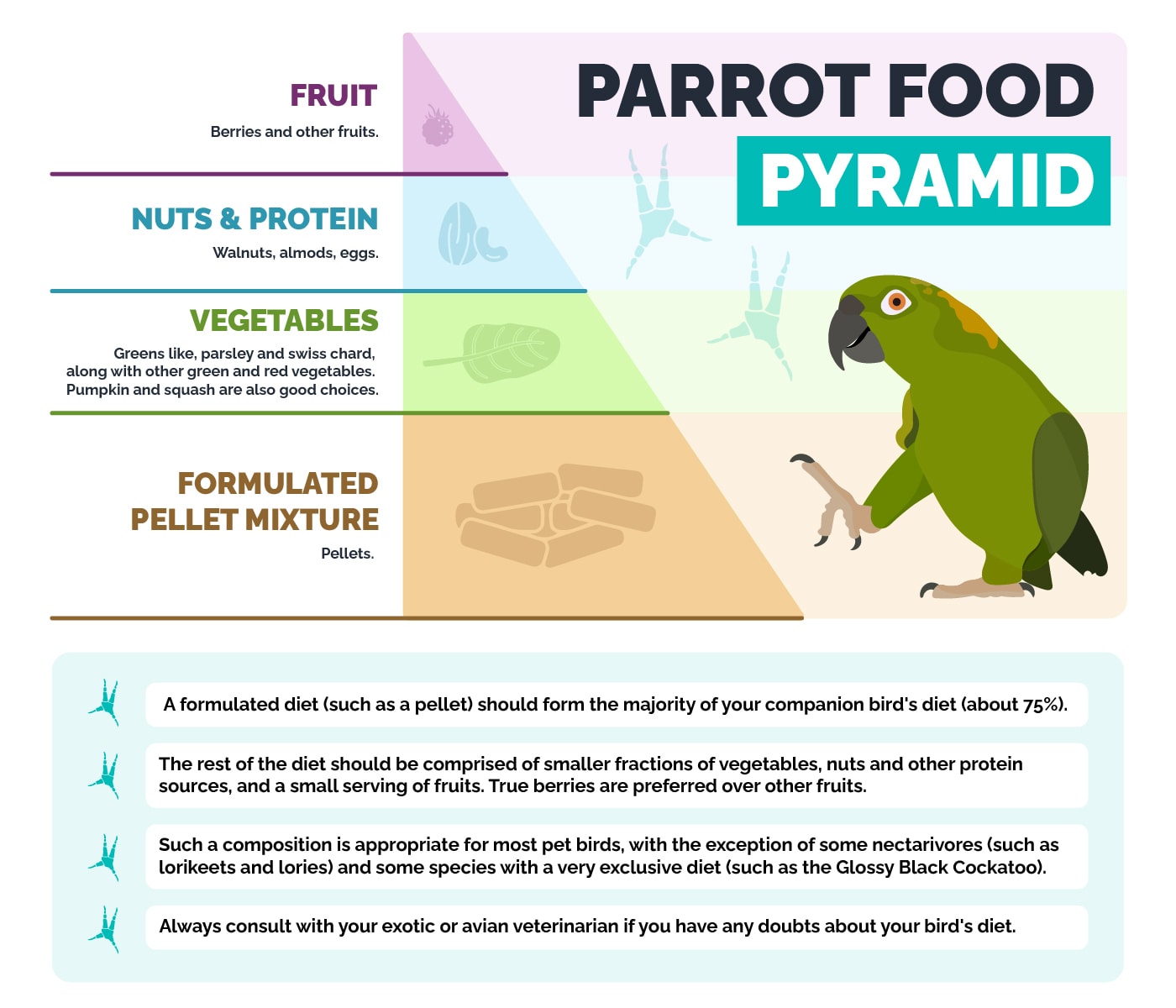
Of course, diet directly affects how often your pet will defecate. Foods higher in protein take longer to metabolize and, thus, will affect how often your cockatiel goes. Remember that fruits and vegetables typically consist mainly of water, making digestion quicker. It can also influence the appearance of the droppings.
The average basal metabolic rate for a cockatiel is 14.2 kcal per day. That varies depending on the bird’s activity rate and its life stage. The more going through their system, the more waste they will eliminate.
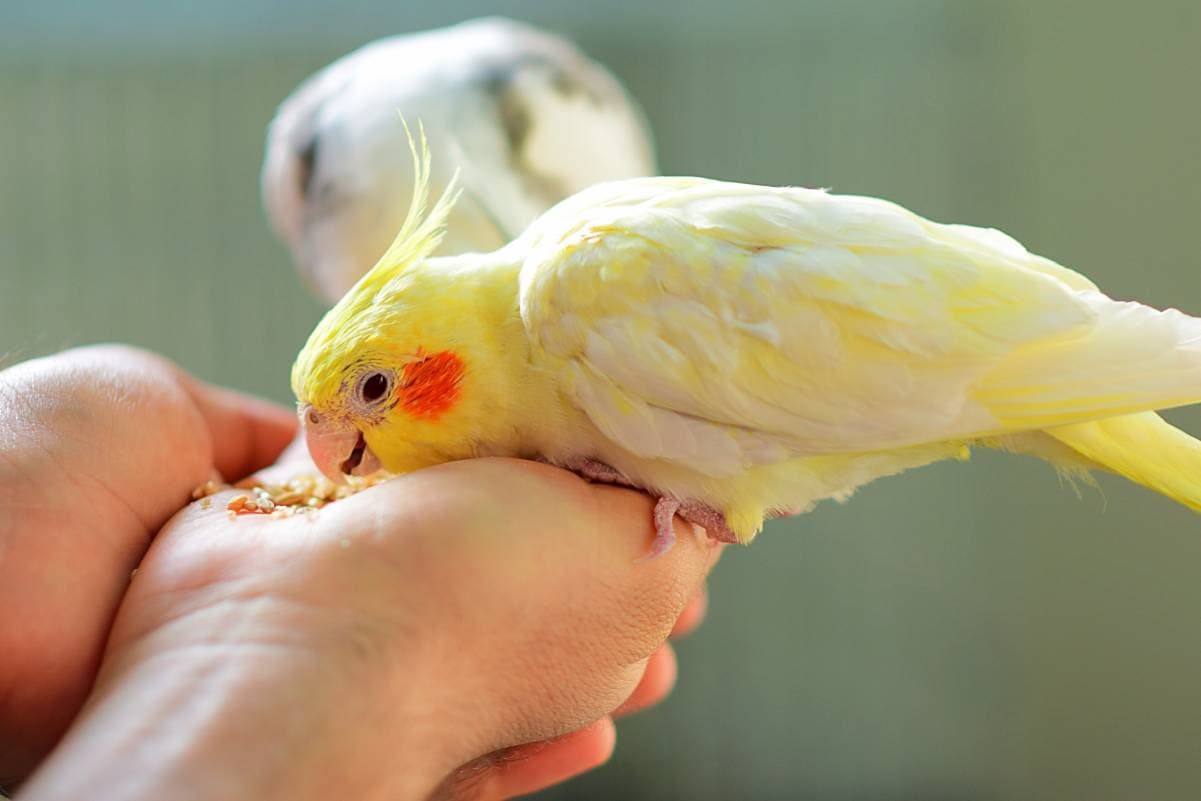
Life as a Prey Species
Cockatiels are prey species in the wild. Even though we’ve raised them as pets since the mid-1800s, these birds still have retained many traits that would benefit their counterparts more than those in captive situations. One of these adaptations is a quick metabolism. That comes in part from the animal’s diet. It also comes from energy use.
Cockatiels fly away from threats instead of facing them. While they are well-equipped with a strong beak to bite a predator, the advantage isn’t on their side considering how they’re also predated on by much stronger birds. Fleeing is the best defensive strategy. It also uses a lot of energy to take off and maintain speeds up to 43 mph (approximately 70 kmph). Therefore, a quick metabolism is an advantage for cockatiels, especially since they are ground foragers.
Their speed comes in handy when drinking at the waterholes. Cockatiels don’t spend a lot of time at these spots because they are predator magnets. Instead, they take a few sips and move on to safer places. However, their diet affects how much they drink since their food, particularly fruits, can help supply their moisture needs.
Final Thoughts
A fast metabolic rate combined with a plant-based diet and life as a prey species means a cockatiel defecates 20 or more times a day. Their digestive systems allow them to tap into the available energy sources quickly to help them escape predation.
These adaptations work well for the cockatiel since the wild population is stable and a species of least concern, according to the International Union for Conservation of Nature and Natural Resources (IUCN).
Featured Image Credit: Miss Nachcha Chayapan, Shutterstock


